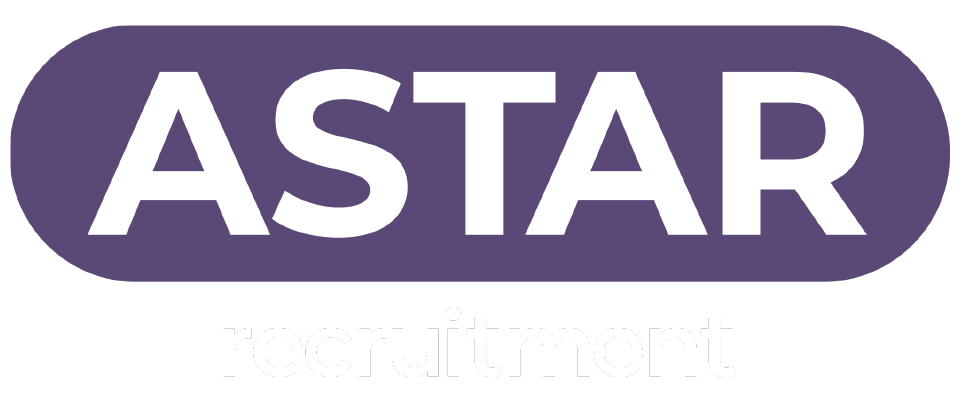ASTAR Recruitment is a specialist Manufacturing Recruitment Agency. We have a large network of businesses who look for staff in manufacturing and production, warehouse, quality and assurance, maintenance and service.
Manufacturing Recruitment Specialists
Manufacturing Recruitment Experts – hiring all level of manufacturing employees
Manufacturing recruitment involves the process of sourcing, attracting, and hiring qualified candidates for job positions within the manufacturing industry. This industry requires a diverse range of skills and expertise, from production line workers to engineers, technicians, quality control specialists, and operations managers. Here are some key considerations for manufacturing recruitment:
- Job Analysis: Start by conducting a thorough job analysis to identify the specific skills, qualifications, and experience required for each manufacturing position. This analysis will help you create accurate job descriptions and job specifications to attract suitable candidates.
- Talent Sourcing: Utilise various sourcing channels to attract potential candidates. This can include online job boards, industry-specific websites, social media platforms, professional networking sites, and recruitment agencies. Consider targeting manufacturing-specific job boards or industry events to reach a specialised talent pool.
- Employer Branding: Develop and promote your organization’s employer brand to attract top manufacturing talent. Showcase the company’s mission, values, work environment, career advancement opportunities, and any unique benefits that make it an attractive place to work within the manufacturing industry.
- Skills Assessment: Develop a comprehensive evaluation process to assess candidates’ technical skills, experience, and knowledge relevant to manufacturing roles. This can include technical tests, practical assessments, behavioral interviews, and reference checks to validate their skills and qualifications.
- Training and Development: Manufacturing roles often require specific technical skills and industry knowledge. Provide adequate training and development opportunities to new hires to help them acquire the necessary skills and adapt to the organisation’s manufacturing processes and technologies.
- Collaboration with Operations: Collaborate closely with the operations team to understand their specific needs and requirements. This partnership will ensure that recruitment efforts align with the organization’s manufacturing goals and operational requirements.
- Continuous Improvement: Regularly review and refine your recruitment strategies based on feedback from hiring managers and candidates. Monitor the effectiveness of sourcing channels, assess the quality of candidates hired, and make necessary adjustments to improve the overall recruitment process.
Remember, manufacturing recruitment is not just about finding candidates with the right technical skills but also individuals who possess a strong work ethic, attention to detail, problem-solving abilities, and a commitment to workplace safety. By employing effective recruitment strategies, you can attract and retain talented individuals who contribute to the success of your manufacturing organisation.
A Manufacturing Recruitment Agency
Manufacturing positions include but are not limited to:
- Vice President of Manufacturing Operations
- Vice President of Operations
- Materials Manager
- Plant Manager
- Plant Finance Manager
- Maintenance Manager
- Production Manager
- Safety & Environmental Manager
- Principal Engineer
- Packaging Engineer
- Contract Manufacturing Manager
- Line Manager
- Machine Operator
- Powder Coater
- Welder
- Process Worker
- General Labourer
- Cleaner
- Store person
- Machine Fitter
- Electrician
- Line Setter
- Machine Setter
- Coater Offsider
Quality and Continuous Improvement
- Director of Operational Excellence
- Director of Continuous Improvement
- Director of Global QA
- Quality Systems Auditor
- Process Improvement Manager
- Quality Assurance Specialist
- Plant Manager
- Six Sigma Black Belt
- Lean Manufacturing Leader
- Planning and Metrics Manager
- Quality Assurance Manager



Common Manufacturing
Positions Explained
Manufacturing positions encompass a wide range of roles within the manufacturing industry. Here are some common manufacturing positions:
- Production Operator: Works on the production line, operating machinery and equipment to assemble, fabricate, or process products. They follow standard operating procedures, ensure quality control, and maintain production efficiency.
- Quality Control Inspector: Inspects and tests finished products or components to ensure they meet quality standards and specifications. They perform visual inspections, use measuring equipment, and document any defects or non-conformities.
- Manufacturing Engineer: Develops and improves manufacturing processes, designs workstations, and implements lean manufacturing principles. They analyze production data, identify areas for improvement, and optimise workflows for increased efficiency.
- Process Technician: Sets up and operates manufacturing equipment, monitors production processes, and troubleshoots any issues that arise. They perform equipment maintenance, conduct adjustments, and ensure smooth operation on the production floor.
- Maintenance Technician: Conducts preventative maintenance and repairs on manufacturing equipment to ensure continuous operation. They troubleshoot equipment issues, perform inspections, and carry out routine maintenance tasks.
- Industrial Electrician: Installs, maintains, and repairs electrical systems and equipment in a manufacturing environment. They diagnose electrical faults, replace components, and ensure compliance with safety regulations.
- Materials Handler: Manages inventory, receives and stores raw materials and finished goods, and prepares materials for production. They use forklifts and other equipment to move materials, monitor inventory levels, and ensure accurate documentation.
- Production Planner/Scheduler: Plans and schedules production activities, coordinates material availability, and ensures production targets are met. They create production schedules, analyze demand forecasts, and collaborate with various departments to optimize production efficiency.
- Safety Coordinator: Implements and monitors safety programs and procedures to ensure a safe working environment. They conduct safety training, perform risk assessments, investigate incidents, and promote safety awareness among employees.
- Continuous Improvement Specialist: Implements lean manufacturing principles and drives process improvement initiatives. They identify inefficiencies, develop and implement improvement plans, and facilitate employee training on lean methodologies.
These are just a few examples of manufacturing positions. The specific roles and responsibilities may vary depending on the organisation, industry, and type of manufacturing processes involved. It’s important to tailor recruitment strategies to attract candidates with the relevant skills, experience, and knowledge required for each specific manufacturing position.
Let us help you find the right
candidate
Our dedicated consultants are available 24/7 to meet all your recruitment needs. We are a phone call away.
